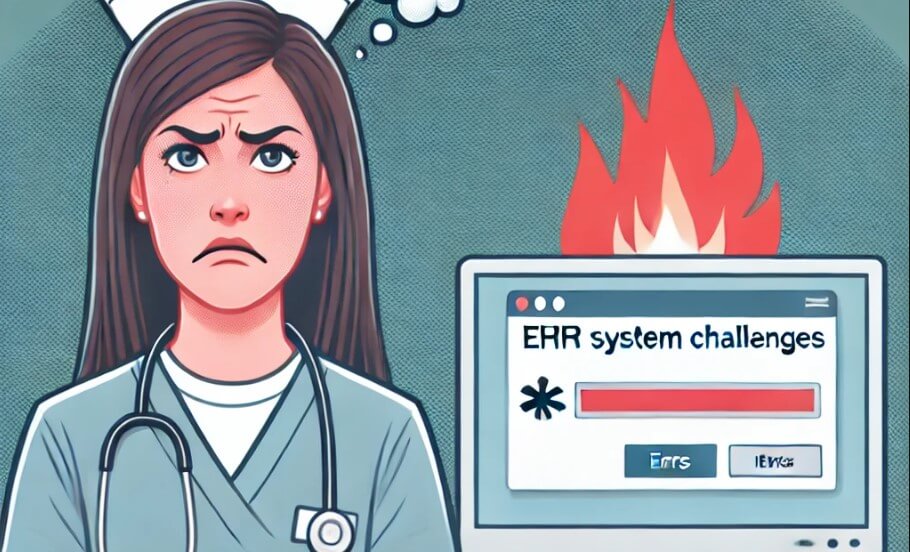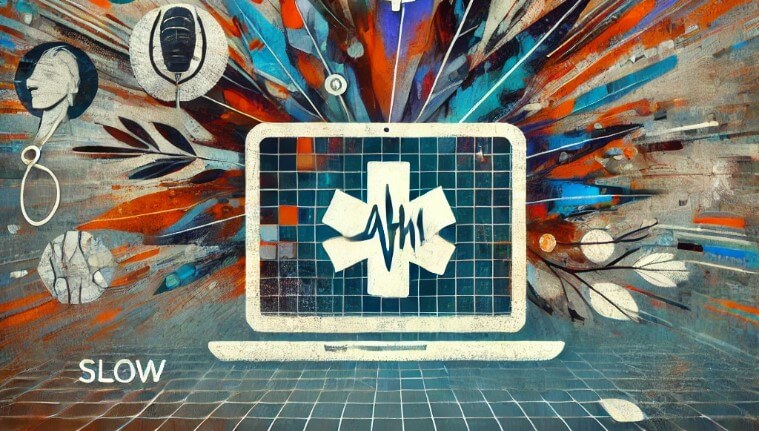A recent survey by Klas highlights the growing dissatisfaction among nurses with electronic health record (EHR) systems, which is contributing to higher levels of burnout within the profession. Despite some improvements in nurse satisfaction with EHRs over the past three years, the survey, which gathered feedback from around 75,000 respondents, reveals ongoing challenges that are significantly impacting the well-being of nurses.
The Link Between EHR Frustrations and Burnout

Burnout among healthcare workers, particularly nurses, has been a persistent issue, exacerbated by the demanding nature of their work. The Klas survey found that 33% of nurses reported symptoms of burnout, with many pointing to EHR-related issues as a major source of stress. Nurses often find themselves spending excessive time on documentation and other administrative tasks within EHR systems, which can be slow, unreliable, and poorly optimized for their specific workflows.
The report highlights several key areas where EHR systems are falling short. Nearly 40% of nurses indicated that their EHRs do not meet expected response times, and close to a quarter of respondents questioned the reliability of these systems. These technological frustrations are not just minor inconveniences; they are contributing to the overall stress and dissatisfaction that many nurses feel, which, in turn, increases their risk of burnout.
The Impact of EHR Challenges on Nurse Retention

The issue of nurse burnout is particularly concerning given the ongoing challenges healthcare systems face in retaining staff. The COVID-19 pandemic intensified workforce shortages and increased labor costs, making it crucial for health systems to address factors that could drive nurses to leave the profession. Unfortunately, the frustrations associated with EHR systems are a significant part of this problem.
Nurses have reported that inadequate EHR training exacerbates these challenges. According to the Klas report, 42% of nurses felt their initial EHR training was insufficient, and 32% said the training did not adequately address their specific workflow needs. Additionally, nearly 40% of respondents indicated that ongoing EHR education was lacking, further complicating their ability to use these systems effectively.
Poor EHR response time affects nurse perception of system reliability (issues and percentages):
- Slow loading within EHR: 68%
- Slow login process: 61%
- Hardware issues: 57%
- Unplanned downtime: 36%
System Upgrades and Communication: Areas for Improvement
The survey also sheds light on the shortcomings of EHR system upgrades and optimizations. Sixty-seven percent of respondents expressed dissatisfaction with the impact of system upgrades, stating that these changes did not significantly improve the EHR experience. Moreover, more than 70% felt that optimizations were not implemented quickly enough, and 60% believed that fixes were not timely. A significant portion of nurses, 50%, reported that changes to the EHR were not well communicated, leading to confusion and further dissatisfaction.
These findings suggest that healthcare organizations need to take a more proactive approach to EHR management, focusing on timely and effective communication, as well as ensuring that upgrades and optimizations truly enhance the user experience.
Addressing EHR-Related Burnout: A Path Forward

From my perspective, the Klas survey underscores the urgent need for healthcare organizations to address the EHR-related issues contributing to nurse burnout. While EHR systems are intended to streamline care and improve efficiency, their poor implementation and inadequate training are having the opposite effect for many nurses. Healthcare providers must prioritize the optimization of EHR systems, ensuring they are reliable, responsive, and tailored to the specific needs of nurses.
EHR challenges contribute to nurse burnout (issues and percentages):
- Staffing: 55%
- Chaotic work environment: 40%
- Too many bureaucratic tasks: 30%
- Lack of teamwork: 25%
- Lack of shared values with leadership: 22%
- No control over workload: 20%
- EHR workflow inhibits efficiency: 17%
- Aggressive patients: 15%
- EHR workflow inhibits quality patient care: 13%
- Lack of training: 11%
- Lack of autonomy: 10%
Furthermore, improving EHR training programs is essential. Nurses should receive comprehensive, ongoing education that is specific to their workflows, enabling them to use these systems effectively and reducing the frustration that comes with poorly designed or inadequately supported technology.
In addition, healthcare organizations must improve communication regarding EHR changes. Transparent, timely communication about upgrades and fixes can help mitigate the confusion and dissatisfaction that often accompany these changes.
In conclusion, the dissatisfaction with EHR systems is a significant factor contributing to nurse burnout, and addressing these issues is critical for improving the working conditions of nurses. By focusing on system reliability, targeted training, and better communication, healthcare organizations can help reduce burnout and retain their nursing staff, ultimately leading to better patient care and a more resilient healthcare system.






